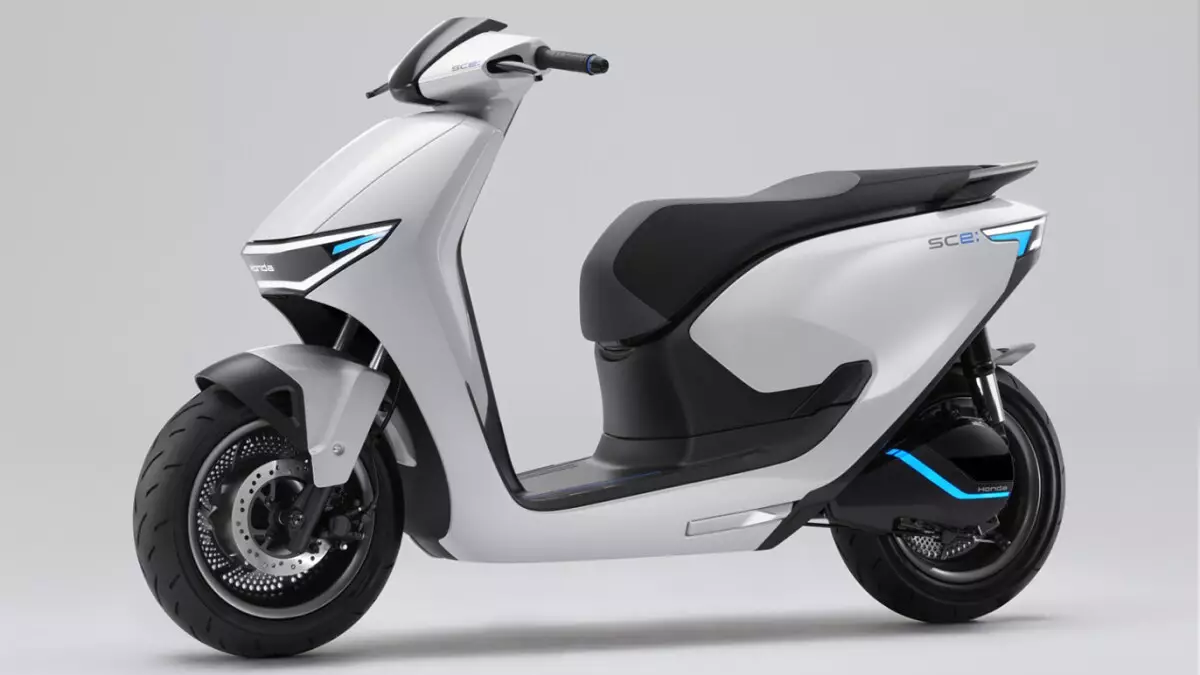The electric two-wheeler market is experiencing a significant upswing, a trend that is not only reshaping the landscape of urban transportation but also influencing the strategies of major motorcycle manufacturers. As global awareness of environmental sustainability grows, consumers are increasingly drawn to electric vehicles (EVs) for their reduced ecological footprint. In India, this surge in popularity is manifesting through numerous brands unveiling a variety of electric scooters catering to diverse consumer preferences and price points.
Major players like Honda, TVS, and Suzuki are gearing up to enter this expanding market, targeting a rollout of their electric models as early as 2025. With the Bharat Mobility Global Expo 2025 on the horizon, industry insiders speculate that this event could serve as a launchpad for a series of electric two-wheelers, igniting further interest among potential buyers.
Honda Motors’ entry into the electric scooter segment is highly anticipated, with their first offering, the Honda Activa EV, expected to arrive in March 2025. This model is believed to carry design elements from its combustion engine counterpart, the Honda Activa 110, ensuring a familiarity that could appeal to existing Honda customers. A standout feature of the Activa EV is its dual Honda Mobile Power Packs, which promise a blend of practicality with detachable and swappable capabilities. This innovative approach seeks to address range anxiety, a common concern among potential electric vehicle owners.
The anticipation surrounding the Activa EV extends beyond its battery technology; it is also expected to include modern features such as a fully digital touchscreen dashboard and the convenience of keyless operation. With an estimated range of over 100 kilometers on a full charge, this model is poised to compete with established players like Ola S1, TVS iQube, and Ather 450. The target price of approximately ₹1 Lakh places it firmly within reach for many consumers, positioning Honda as a formidable competitor.
TVS and the Everyday Commuter
TVS is not backing down in this competitive landscape. The company is reportedly preparing to launch at least two electric vehicles within the next six months. One of these is expected to be tailored for the business-to-business (B2B) sector, while the other is likely to be an electric version of the immensely popular TVS Jupiter.
The Jupiter EV is anticipated to focus on the daily commuter, a segment that holds immense potential in the bustling Indian market. With an expected range of 70-80 kilometers per charge and an approachable price point beneath the ₹1 Lakh threshold, TVS aims to provide an attractive option for everyday users seeking an economical alternative to gasoline-powered scooters.
Suzuki has set its sights on introducing the Burgman EV, making waves in the electric scooter arena. Production for this model is projected to start in December 2024, with ambitious sales goals of 25,000 units in its first year. This highlights Suzuki’s confidence in the electric segment and its intention to capture a significant market share.
Unlike the detachable battery design hinted at in earlier spy shots, the Burgman EV will reportedly feature a fixed battery setup. While precise details about its specifications remain scarce, there’s considerable curiosity about how the Burgman EV will differentiate itself in a crowded market. With the codename XF091 and expectations to debut at the Bharat Mobility Global Expo 2025, Suzuki’s new model seeks to capture the attention of electric scooter enthusiasts.
A Game-Changer for Urban Mobility
Overall, the projected launches by Honda, TVS, and Suzuki reflect a broader shift towards electric mobility within urban landscapes. These manufacturers are not just competing with each other; they are collectively pushing the boundaries of innovation, sustainability, and consumer choice in the electric two-wheeler space.
As we edge closer to 2025 and the Bharat Mobility Global Expo, the anticipation surrounding these electric scooters will only intensify. The evolving landscape suggests a promising future for electric two-wheelers, one that could significantly reshape how we think about urban transportation, making it not only more sustainable but also more accessible for everyday commuters. The move towards electric mobility stands as a testament to the industry’s adaptability and the imperative to meet the evolving expectations of environmentally conscious consumers.


Leave a Reply